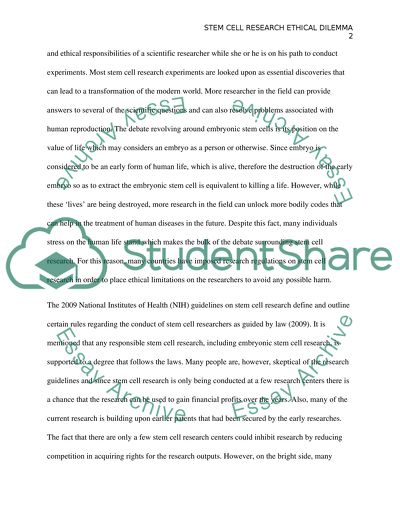Cite this document
(“Stem Cell Research Ethical Dilemma Essay Example | Topics and Well Written Essays - 1000 words”, n.d.)
Retrieved from https://studentshare.org/health-sciences-medicine/1631449-stem-cell-research-ethical-dilemma
Retrieved from https://studentshare.org/health-sciences-medicine/1631449-stem-cell-research-ethical-dilemma
(Stem Cell Research Ethical Dilemma Essay Example | Topics and Well Written Essays - 1000 Words)
https://studentshare.org/health-sciences-medicine/1631449-stem-cell-research-ethical-dilemma.
https://studentshare.org/health-sciences-medicine/1631449-stem-cell-research-ethical-dilemma.
“Stem Cell Research Ethical Dilemma Essay Example | Topics and Well Written Essays - 1000 Words”, n.d. https://studentshare.org/health-sciences-medicine/1631449-stem-cell-research-ethical-dilemma.


